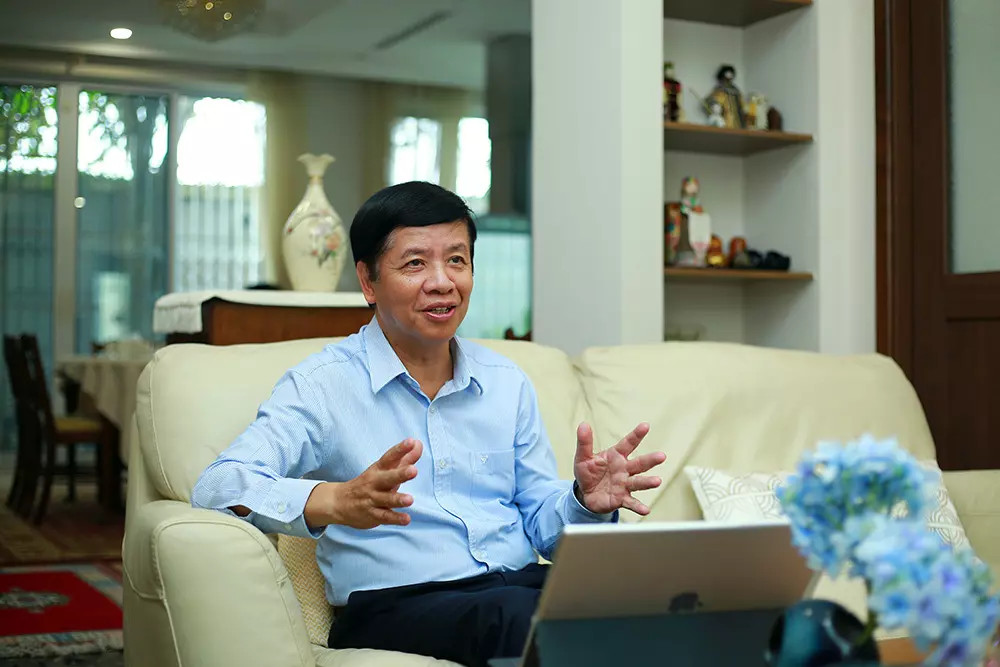
Former Deputy Minister of Foreign Affairs and former Vietnamese Ambassador to Japan Nguyen Quoc Cuong spoke with VietNamNet about the Vietnam-Japan relationship and the contributions made by Abe Shinzo to the development of the relationship.
Abe Shinzo once said that he respected Vietnam and had special affection for Vietnamese leaders. How was this expressed?
The leaders of the two countries all affirm that the Vietnam-Japan relationship is in the best stage of development, to which Abe made a great contribution.
Abe repeatedly told Vietnamese leaders that he personally respected and had special affection for Vietnam. At the first meeting with Vietnamese Prime Minister Nguyen Xuan Phuc, Abe said when he was in his first term as Prime Minister (2006) he visited Vietnam and when he was no longer Prime Minister (2007) he visited Vietnam again and was warmly welcomed by Vietnamese leaders as a friend.
When Vietnamese leaders visited Japan, they met and discussed issues with him. This was why Abe, after re-elected as the Japanese Prime Minister (December 2012), he chose Vietnam as the first country to visit.
When Vietnamese Party Chief Nguyen Phu Trong paid an official visit to Japan, he was received respectfully and cordially by the Japanese government and Abe in person. Trong was considered a national guest, though Vietnam and Japan have different political regimes.
In 2017, Vietnamese Prime Minister Nguyen Xuan Phuc paid an official visit to Japan and Abe, together with Phuc, attended and spoke at an investment promotion forum which gathered more than 1,600 enterprises of the two countries.
At that time, he affirmed the strong determination that he will, hand in hand, together with the Vietnamese Minister further promote cooperation between the two countries for development and said he supported Japanese enterprises to do business with Vietnam.
When the Covid-19 pandemic broke out, Japan gave support to Vietnam worth tens of millions of dollars through bilateral programs and international organizations. The Japanese government decided to add 400,000 Vietnamese people living and working in Japan to the list of people to receive financial support worth 100,000 yen per person, the same as the support for Japanese citizens.
You were the Ambassador to Japan in 2015-2018. Do you remember any memories about Abe’s special affection for Vietnam?
When Nhat Linh was murdered in Japan, Abe met me directly and said that the Japanese government apologized to thr Vietnamese people. He then asked the Japanese Ministry of Foreign Affairs and Japanese Ambassador to Vietnam to visit Nhat Linh’s hometown to burn incense and bow to apologize to her family.
I also remember that at a reception, Abe toasted everyone. He put his arm around my shoulders and toasted very cordially like friends.
When I was going to terminate my tenure in Japan, the Japan - Vietnam Parliamentary Friendship Alliance held a reception, and to my surprise, Nikai, the chair of the alliance, gave me a letter from Abe. The letter appreciated my contributions during my tenure, and it is the most valuable gift I had when returning to Vietnam.
Which achievements did you think Abe, who had a record-long term as Prime Minister, brought to Japan?
I think there are three major achievements. First, Abe succeeded in maintaining political stability, ensuring a solid government solution. Before Abe took office as Prime Minister, Japan had witnessed long political instability which made it difficult to make big decisions.
Second, he initiated so-called Abenomics, a policy which had a positive impact on Japan’s economy. When Abe for the second time became Prime Minister, Japan’s economy experienced one of the longest positive growth periods (the GDP grew for seven years, from 2013 to 2019).
Third, in foreign affairs, Abe promoted the Active Pacifism and Global Vision Diplomacy, Free and Open Indo Pacific Strategy, economic links and free international trade, including the Comprehensive and Progressive Agreement for Trans-Pacific Partnership (CPTPP). Under Abe’s administration, the Japan-US alliance relationship was strengthened. Japan also improved relations with China, South Korea and Southeast Asian, including Vietnam.
Under Abe’s administration, the Vietnam-Japan relationship flourished in all fields. What have been the most outstanding things?
There are at least seven impressive hallmarks.
First, Abe was the Japanese Prime Minister with the highest number of visits to Vietnam (4 times). The first visit was paid in November 2006, just two months after he took the office. The second time was in January 2013, just one month after he returned to the post of Prime Minister.
Second, Abe attached much importance to upgrade the relationship between the two countries. With his November 2006 visit, the relationship was upgraded to a ‘strategic partnership for peace and prosperity in Asia’. In his second term, the relation was upgraded to ‘Extensive Strategic Partnership for Peace and Prosperity in Asia’.
Third, the political confidence between the leaders and people of the two countries were consolidated.
Fourth, for many years, Japan has been an important economic partner of Vietnam, the biggest ODA (official development assistance) provider to Vietnam, the second biggest foreign investor (4,500 projects, $60 billion), the third biggest tourism partner, and the fourth largest trade partner.
Fifth, exchanges between localities and people of the two countries increased.
Sixth, cooperation in human resources is a bright spot in the two countries’ relationship.
Seventh, Abe attached much importance to Vietnam’s role and position in the region and international arena. Japan invited Vietnamese Prime Minister to attend the expanded G7 Summit in May 2016 and G20 Summit in June 2019.
Thai An